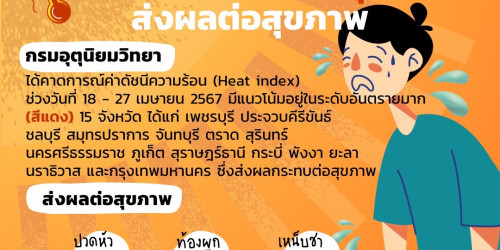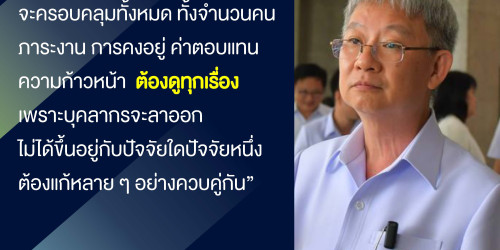Ministry says current payments don't reflect actual costs.
Financial pressure is growing on the providers of the country's three main healthcare schemes in the wake of the Public Health Ministry's decision to adjust medical-service fees at state hospitals across the country.
Under the plan, the adjustment, which will raise fees by between 10 and 15 per cent on most services very soon, would not directly affect patients.
At present, 48 million people qualify for free medical treatment via the government-sponsored universal healthcare scheme, which is run by the National Health Security Office (NHSO). Some nine million others have access to free treatment under the social-security scheme, which is managed by the Social Security Office (SSO). A further six million people receive free treatment via the healthcare-benefit schemes offered to civil servants and their families. The Budget Bureau, which allocates the budget to two of these schemes, will very likely be asked to provide more.
Medical-service providers can get full reimbursement only from the scheme for civil servants and their families. For the universal healthcare scheme, they get a flat rate of Bt 2,700 per head per year. The SSO has offered a flat rate of just Bt 1,400 per head per year to participating hospitals.
The NHSO asked the Budget Bureau for a subsidy of Bt2,900 per head per year, but its request was turned down.
"The subsidies do not reflect the actual costs faced by state hospitals," Public Health Ministry permanent secretary Dr Narong Sahamethapat said yesterday. "They have simply offered the amount they want."
Narong said the ministry's move to launch the new rate at state hospitals would reflect the actual cost of each category of services.
He reckoned that the new adjustment would not automatically force the operators of the three healthcare schemes to raise their subsidies to state hospitals. However, he said his ministry planned to raise the issue of the actual cost with them soon. "It depends on them whether to allocate higher subsidies," Narong said.
An informed source disclosed that about 175 out of more than 800 state hospitals suffered cash-flow problems in the third quarter of fiscal 2012.
Dr Udom Kachintorn, the dean of Mahidol University's Faculty of Medicine at Siriraj Hospital, yesterday recommended co-payments as a means to help state hospitals through the financial crisis.
"Why has the government prevented people who can afford it from paying?" he said.
He said the co-payment rate could vary depending on treatment. "If necessary, the government should shoulder 75 per cent of the cost while patients shoulder the rest. If it's not necessary, it should be the reverse."
According to Udom, Siriraj Hospital loses between Bt400 million and Bt500 million to the universal healthcare scheme and more than Bt100 million to the social-security scheme each year.
"We can stay in operation because we receive donations," he said.
Udom said his hospital would soon adjust its rates, with prices rising by 10 per cent.
Thai Federation of Medical Centre and General Hospital Doctors president Prachumporn Booncharoen reckoned that the subsidies for healthcare schemes might need to be adjusted based on the average cost.
Rural Doctors Society president Dr Kriangsak Watcharanukulkiat, however, said the Public Health Ministry should release information on actual costs. "In fact, with new technology, some medical services should become cheaper," he said.
Source: The Nation 30 January 2013








